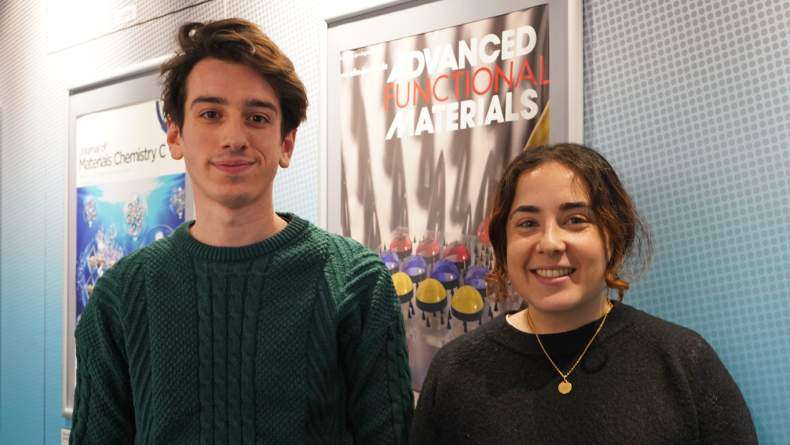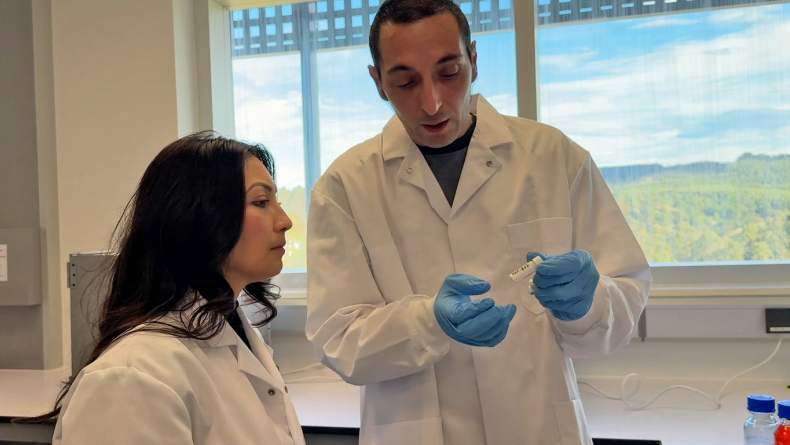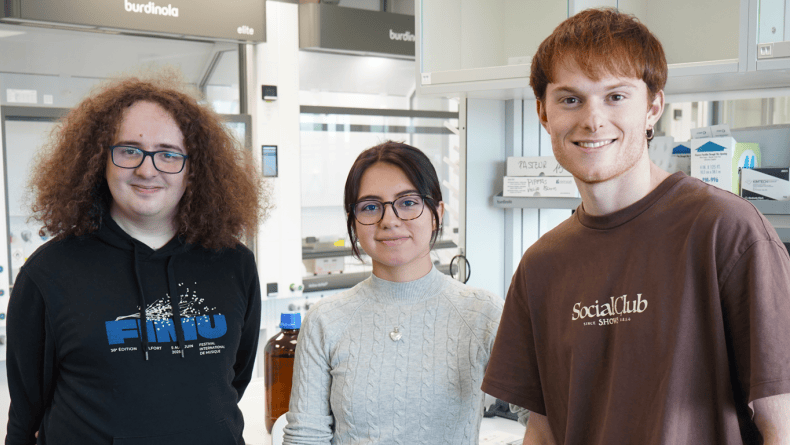Artificial proteins for fast, sustainable and biocompatible energy devices
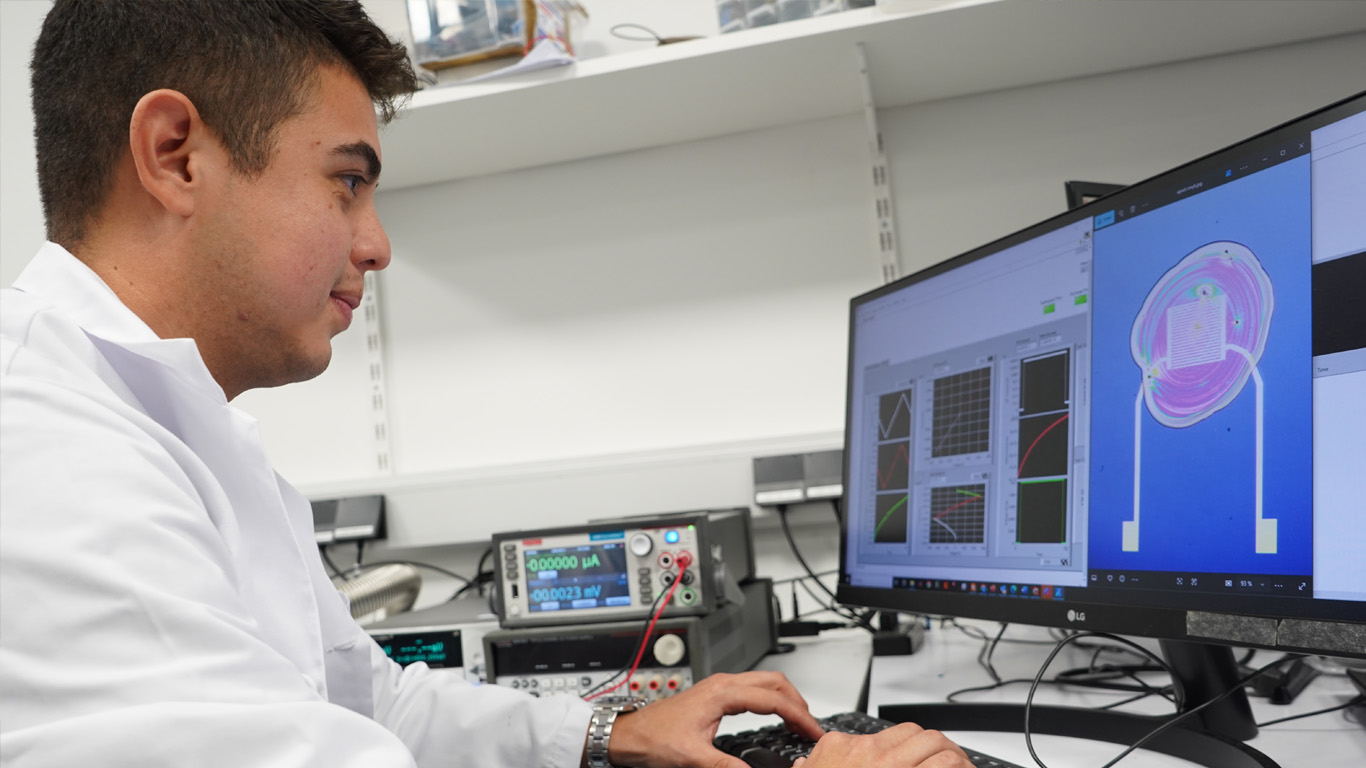
Researchers at the CIC biomaGUNE, BCMaterials and CIC energiGUNE Basque research centres have managed to modify a class of proteins to give them the ability to transport and store electricity. These proteins can be used to create sustainable, efficient and biocompatible conducting materials. These materials are highly stable and easy to process, which means they can be incorporated into industrial processes.
The study, led by Aitziber L. Cortajarena (Ikerbasque Research Professor and scientific director of CIC biomaGUNE), Reyes Calvo (Ikerbasque Research Professor at BCMaterials) and Maica Morant (senior researcher at CIC EnergiGUNE), has been published in the prestigious journal Advanced Materials, and comes within the framework of the e-PROT project, which has received funding from the European Union’s Horizon 2020 Research and Innovation Programme.
The proteins used in this work were designed in the lab. “They are made up of small, repeated units that are assembled one by one like LEGO bricks. Each ‘brick’ has the same overall shape, and when fitted one after the other, a larger, ordered, stable and modular structure is built. This structure makes them more useable, as they can be provided with specific functions without altering their structure, which renders them tailor-made.
In this case, the team of researchers were seeking to get the protein to conduct electricity efficiently. To achieve this, they genetically modified the DNA, which contains the instructions for producing the protein.
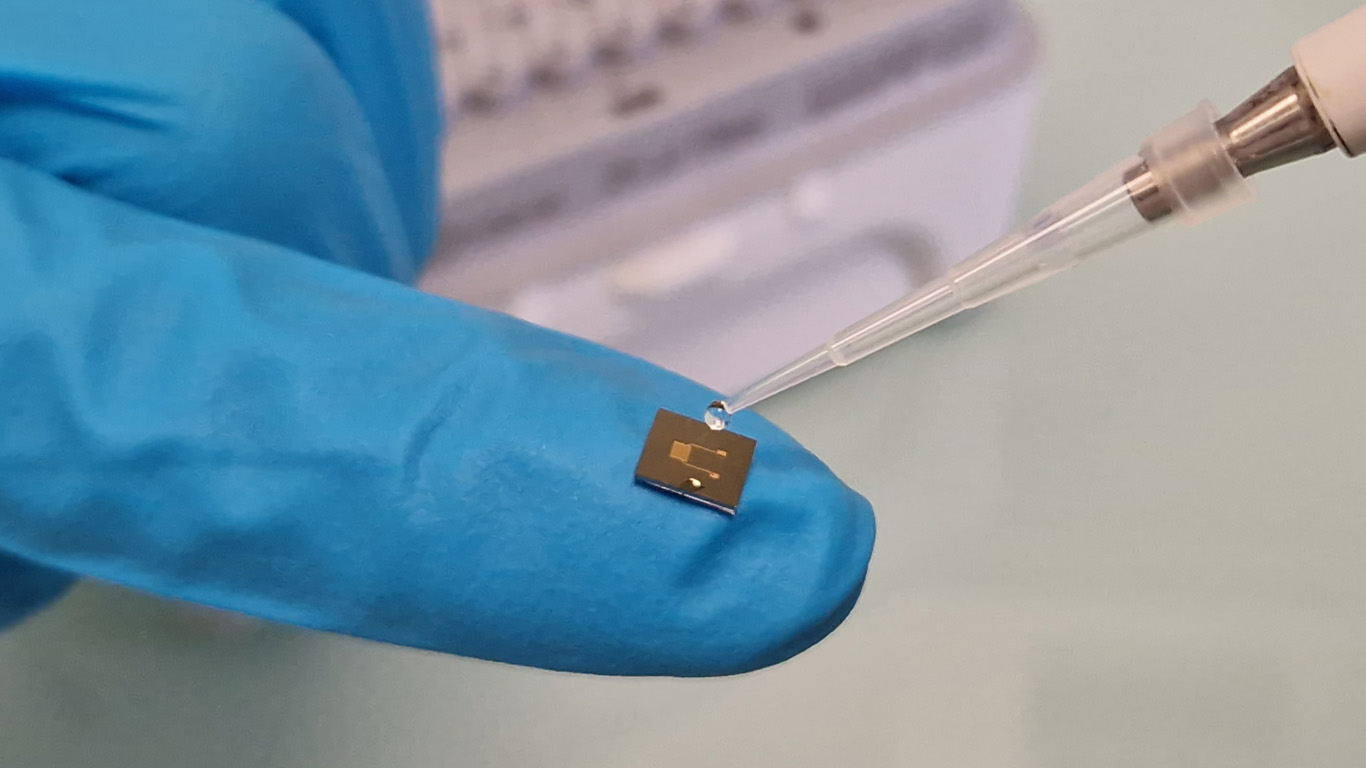
The future of energy storage devices
The changes made to the protein facilitated the movement of ions within the material, and thanks to this ionic conduction property, the proteins were successfully incorporated into an efficient energy storage device capable of storing and releasing energy very quickly.
Going forward, these conducting, protein-based materials could replace the traditional conducting materials used in batteries and supercapacitor devices, which would make them much safer for the human body. Conductive proteins are of particular interest for the development of bioelectronic devices, such as pacemakers, implantable glucose sensors, and brain electrodes used to treat diseases such as Parkinson's.
The results of this study are opening the door to the next generation of energy storage devices based on sustainable, safe and inherently biocompatible materials.
In fact, it is no longer difficult to imagine a future in which energy can be stored sustainably. A world in which phones, fitness trackers and other portable devices run on energy stored in biodegradable, sustainable and safe materials. Scientific research is closer than ever to making this vision a reality.
Related news
Sara Martín and Stefano Lunghi Join BCMaterials as New Researchers
BCMaterials is pleased to welcome two new members to its research team: Sara Martín Iglesias, a postdoctoral researcher in the Active and Smart Materials research line, and Stefano Lunghi, a…Nanomaterials for Water Remediation and Valorization
Scientific staff at BCMaterials are developing next-generation nanomaterials combined with naturally sourced polymer membranes for water decontamination and reuse. These advanced materials not only…Three New Resarchers Join BCMaterials
The new year has brought BCMaterials the arrival of three new young scientists to our staff. They are the pre-doctoral researchers Karen Cano and Mikel Russo, along with the post-doctoral researcher…BCMaterials Activities at Emakumeak Zientzian (Women in Science)
This year marks the 10th anniversary of the Emakumeak Zientzian (Women in Science) initiative, which brings together more than 30 Basque organizations (universities, research centers, companies…) to…
